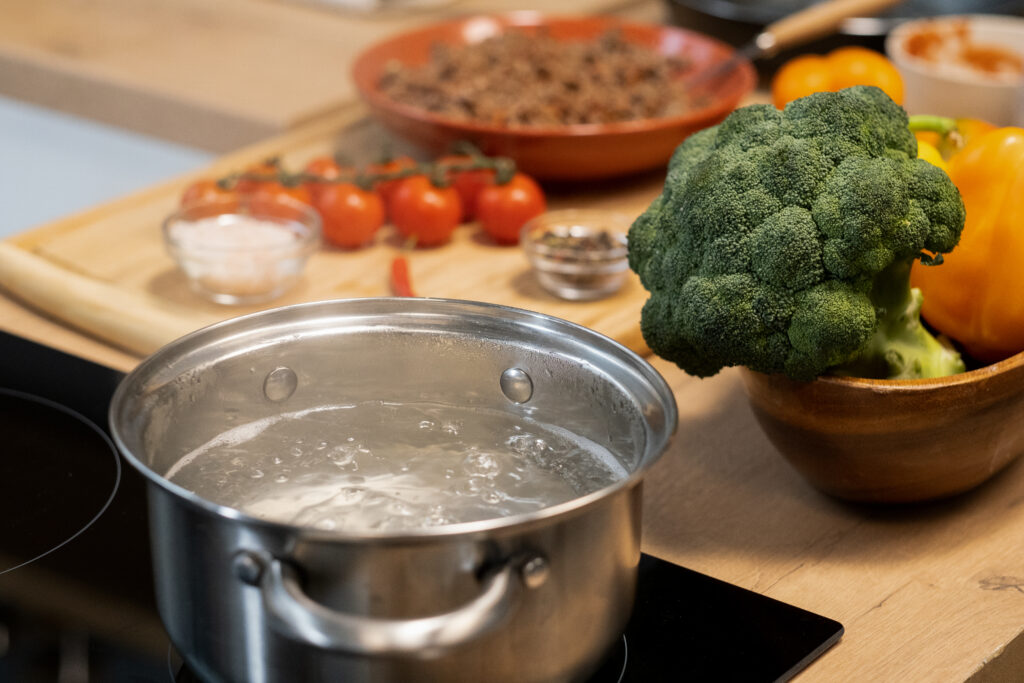Water is an essential part of our daily lives, and its importance goes beyond hydration. It’s also a crucial ingredient in countless recipes, from brewing coffee and cooking pasta to making soups and baking bread. While we often focus on the quality of the ingredients that we use in our cooking, the quality of the water we use is sometimes overlooked.
With that in mind, let’s go deeper into the science behind the relationship between water quality and food taste, explore the importance of using great-tasting water in your culinary creations, and provide some practical tips for improving the water you use in your professional kitchen.
Why Does Water Quality Matter?
Water is a universal solvent that is involved in various stages of food preparation, including cooking, brewing, and baking. Its quality not only affects the taste of the final product but also its appearance, aroma, and texture. The presence of impurities, minerals, and contaminants in water can lead to undesirable tastes and odors, affecting customers’ perception of the food and the overall dining experience.
Factors Affecting Water Quality
1. Mineral Content: Minerals such as calcium and magnesium contribute to the hardness of water. Hard water can leave residue on cooking utensils, causing scaling in kitchen appliances and altering the texture and appearance of food. Additionally, the presence of iron and manganese can impart a metallic taste to the food, making it unappealing to customers.
2. Chlorine and Chloramines: These chemicals are added to water as disinfectants to eliminate harmful microorganisms. However, their residual presence in water can affect the taste and aroma of food and beverages, particularly in coffee and tea. Chlorine can react with organic compounds in food, leading to the formation of unpleasant-tasting byproducts.
3. pH Level: The pH level of water can affect the taste, texture, and appearance of food. A higher pH level can cause discoloration in vegetables, while a lower pH level can alter the taste of certain ingredients, such as vinegar and citrus fruits.
4. Contaminants: The presence of contaminants like bacteria, viruses, and other microorganisms can not only affect the taste of food but also pose health risks to customers. Furthermore, the presence of heavy metals like lead and mercury can impart a bitter taste to food and beverages.
How to Improve Water Quality for Your Business
Water Filtration Systems: Installing a water filtration system in your kitchen can help remove impurities, minerals, and contaminants from the water, ensuring consistent taste and quality in your food. Filtration systems come in various types, including activated carbon filters, reverse osmosis systems, and ion exchange systems. Choose the one that best suits your business’s needs.
Regular Maintenance: Regularly maintaining your water filtration system and kitchen appliances is essential for ensuring the consistent quality of water used in food preparation. Replace filters as recommended by the manufacturer and clean appliances that use water, such as coffee machines, regularly to prevent scaling and buildup of contaminants.
Water Quality Testing: Regularly testing your water supply for contaminants, mineral content, and pH levels can help you identify any issues with water quality. This allows you to take the necessary steps to address the problem and ensure that the water used in your kitchen meets the required standards.
Educate Your Staff: Educate your kitchen staff on the importance of water quality in food preparation and the steps to follow to maintain the quality of water used in your establishment. Proper handling and storage of ingredients, as well as maintaining cleanliness in the kitchen, can significantly contribute to the overall taste of your food.
The Bottom Line
Water quality plays a vital role in determining the taste and overall quality of food products. By understanding the science behind water quality and taste, food businesses can make informed decisions about water sourcing, treatment, and testing to ensure they are providing the best possible products to their customers.
After all, investing in water quality not only leads to improved customer satisfaction, but also fosters a positive brand reputation and ensures compliance with food safety regulations.
Achieving consistent water quality across your franchise locations is essential to maintaining a strong brand reputation and providing an exceptional customer experience. New York WaterMaker’s advanced water filtration system offers a customizable, easy-to-integrate, and environmentally friendly solution that guarantees uniform water quality for your business.
Invest in the best for your franchise, and let New York WaterMaker help you deliver the consistent taste and quality your customers expect and deserve. Contact us today!

